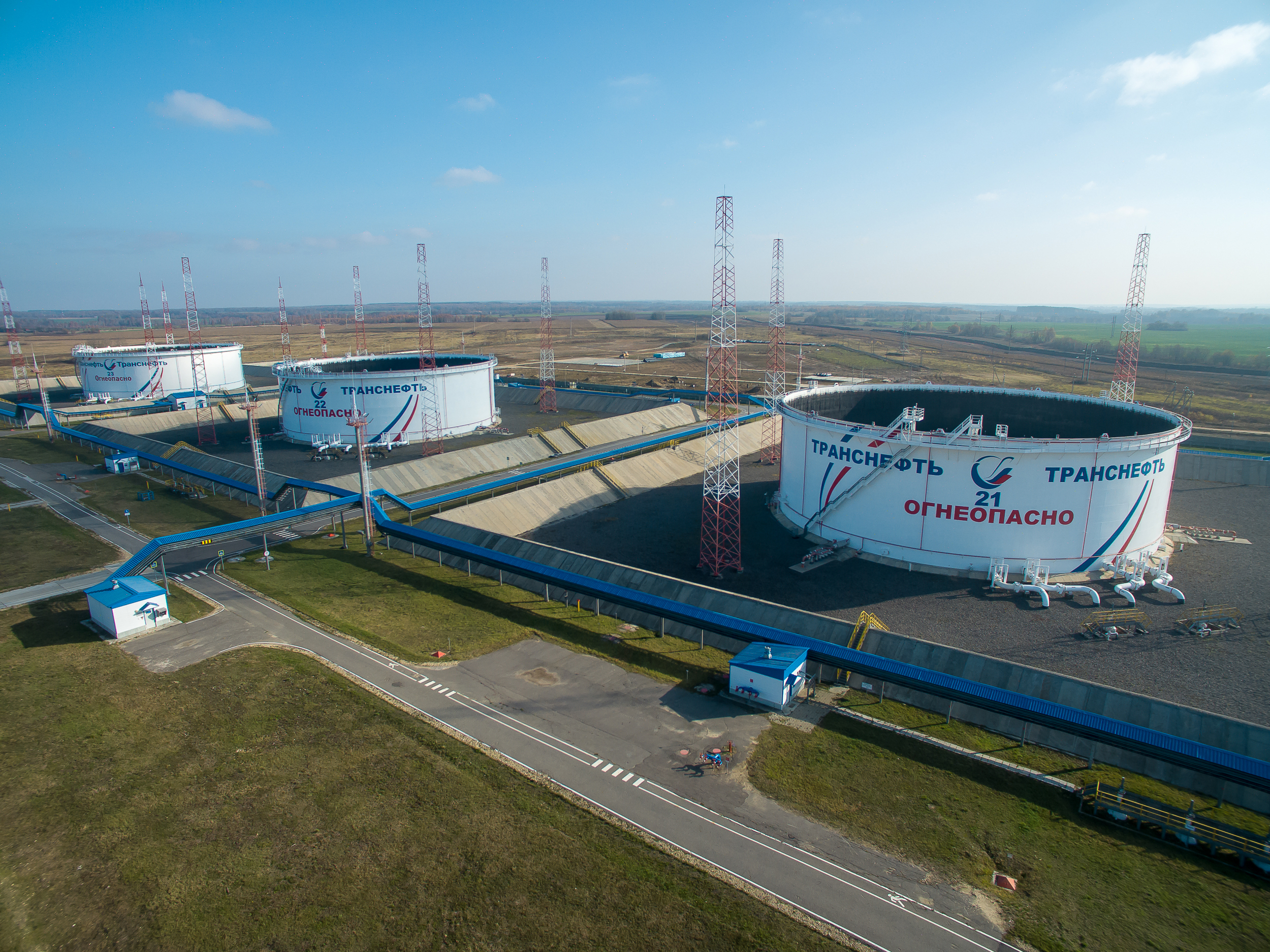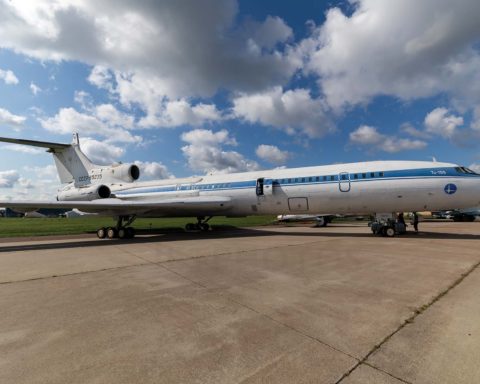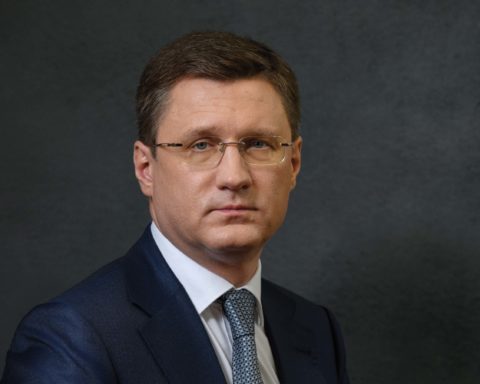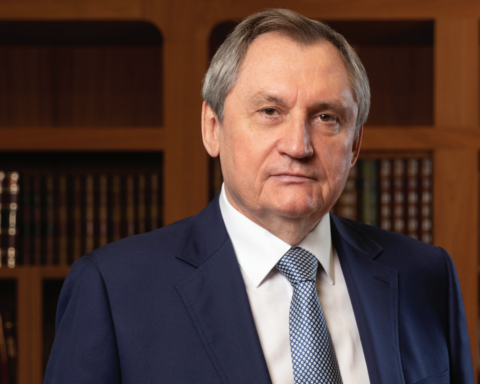Nikolay Tokarev – president of Transneft PJSC
Over the past fifteen years, Transneft has implemented a lot of major and strategic important investment projects, such as construction of the Eastern Siberia – Pacific Ocean or BPS‑2 oil-trunk pipelines. This has made it possible to create the conditions for growth in Russia’s crude-oil production from 320 mln tons in 2000 to 556 mln tons in 2018, and led to an increase in budget revenues. In the immediate future, the company intends to focus on the repair and replacement of pipeline line sections, the creation of opportunities for the swift redirection of export oil streams, and the improvement of system reliability.
E.P.: Transneft’s core business is transporting oil at the rates set by FAS (Russia’s Federal Antimonopoly Service). They were indexed at 4% in 2018; nevertheless, per IFRS standards, the company’s revenue increased by 10.8%, and in the first half of 2019 – by 12.3%. What made that possible?
N.P. Tokarev: In fact, last year, the revenue of Transneft Group increased by 10.8% compared to 2017. This was primarily the result of a 42.3% increase in revenue from oil sold to China. In turn, this was influenced by an 8.3% increase in the USD exchange rate and a 31.1% surge in oil prices.
In Q4 2018, Novorossiysk Commercial Sea Port (NCSP) joined Transneft. As a result, the group posted RUB14.4 bln in revenue from stevedoring and the other services provided by the sea port and its fleet.
Revenue growth in 1H 2019 was also influenced by a 7.3% increase in proceeds from oil sales to China. This was caused by a 9.2% increase in the USD exchange rate, coupled by a simultaneous 5.3% drop in oil prices. That said, in 1H 2019, NCSP revenue stood at RUB29.2 bln.

E.P.: In April, there was an emergency along the Druzhba pipeline caused by the entry of organochlorine compounds into the system. As a result, oil exports via this pipeline were suspended. What regulations have been developed by Transneft to avoid such incidents in the future?
N.P. Tokarev: The critical task during the emergency was to find the source of ingress of contaminated oil, localize it and restore operation of the Druzhba pipeline so as to resume oil exports as swiftly as possible.
A Roadmap for the replacement of off-spec oil in pipelines running through Belarus was developed and approved by the Governments of the Russian Federation and Belarus. Finally, all planned actions were completed by the target dates, and restrictions on oil deliveries were fully lifted. In addition, we managed to avoid serious risks of oil deliveries to Europe being interrupted by redirecting both export and domestic oil-stream supplies.
Negotiations with foreign colleagues representing oil-transportation companies and buyers of Russian oil were conducted simultaneously to resolve the present problem.
To prevent such incidents in the future, Transneft introduced for consideration at the government level the possibility of being authorized for the in-process inspection of crude-oil delivery-and-acceptance points of third-party shippers ensuring oil supplies via the trunk-pipeline system. On the one hand, this remedy would ensure the transparency of the crude-oil delivery-and-acceptance points of oil companies receiving oil from different owners and further well-consolidated delivery to the Transneft system. On the other, it would enhance the monitoring of oil transportation within the production chain at the stage of its preparation and delivery to CODAP process lines.
Transneft suggests introducing the mandatory accreditation of testing laboratories analyzing oil at the time of its receipt on the main line within the scope of the national accreditation system. This remedy would ensure the establishment of common requirements both for the personnel, as well as for the equipment and documentation, of testing laboratories. Compliance with these regulations would be brought under the control of a common state authority.
Simultaneously, we’ve suggested making changes to the current GOST R51858–2002 «Oil. General Specifications» and updating the standards governing test intervals and methods. The list of parameters with established threshold levels for the substance content of oil also needs updating.
Each year, the issue of increasing quantities of chemical reagents used in oil production is becoming more acute. In this connection, Transneft suggests restarting the process of developing and approving mandatory requirements governing the reagents and chemicals used in oil production and transportation. This should result in the creation of a special industry-wide registry of products approved and permitted for use in the oil sector.

E.P.: The Ministry of Finance periodically raises the question of Transneft needing to be included in the 2020–2022 privatization program. Do you think it’s worth cutting the state’s stake in the company, considering the great interest shown by private portfolio investors?
N.P. Tokarev: At present, Transneft is not participating in the draft privatization program. We think that privatizing the state’s common stock in the company wouldn’t be prudent, given Transneft’s strategic role in the Russian oil industry and the necessity of maintaining the principle of equidistance from Russian oil-and-gas companies.
Moreover, at present, it would be virtually impossible to sell the stock of Transneft shares to institutional investors at a fundamentally-reasonable and fair value due to the financial sanctions imposed by the USA, EU and other foreign countries.
And for investors willing to buy the company’s shares right now, there’s already a very close option – the free trading of preferred Transneft shares on the open market. Stocks of «prefs» have already been purchased by big Russian and international investors, including a series of independent investment funds from Japan, Singapore, China and the Gulf countries. However, the amount of dividends per share payable for «prefs» cannot be less than the amount of dividends paid for common shares.
E.P.: In recent years, Transneft has repeatedly declared that it does not intend to launch any extensive projects involving new pipeline construction in the near future. With that in mind, how does the company plan to continue developing over the mid- and long-term?
N.P. Tokarev: For the last fifteen years of its history, Transneft has been pursuing ambitious construction projects and developing its trunk-pipeline network. As a result, against the backdrop of significant growth in Russian oil production from 320 mln tons in the early 2000s to 556 mln tons in 2018, we managed to fully meet the demands of oil companies in terms of the transportation of oil and petroleum products. Today, there is a net surplus in terms of capacity for making oil deliveries abroad. Oil companies can export oil both westward and eastward.
As of 2020, our plans do not envision the implementation of significant investment projects. But at the moment, the ratio of pipelines that have been in service within the Transneft system for more than 30 years is approaching 50%. Over the mid- and long-term, we plan to focus the company’s main efforts on increasing the total span of line-section replacement, renewing our fixed assets and pursuing the improvement of overall system reliability.
The company also aims to maintain the quality of transported oil and create a more flexible system of main pipelines, thereby allowing for the prompt redistribution of freight traffic in different directions in case of emergency. To handle such events, Transneft plans to increase the capacities of its tank farms and implement measures ensuring the redistribution of oil streams among export directions, in case of the forced cessation of deliveries via some of them.
This year, Transneft closed a deal envisioning the purchase of NCSP shares, thereby increasing its stake to over 60%. Now, as the principal shareholder, Transneft has set its sights on developing the Novorossiysk Sea Port, and not only with respect to the transshipment of oil and petroleum products, but encompassing other kinds of operations as well. One of our goals will be to improve NCSP management efficiency, particularly in view of the significant synergistic effect generated by the consolidation of two major infrastructure companies.

E.P.: One of Transneft’s recent major investment projects involved expansion of the «Eastern Siberia – Pacific Ocean» pipeline to 80 mln tons and Kozmino Port to 50 mln tons. How will this influence system operation?
N.P. Tokarev: To be more precise, Transneft launched four major investment projects in 2019. The main and most ambitious of these involves expansion of the ESPO‑1 system to 80 mln tons per year, and ESPO‑2 to 50 mln tons per year. Implementation of these projects will ensure an increase in oil-supply volumes to the countries of the Asia-Pacific Region via Kozmino Port to 36 mln tons per year while fulfilling existing obligations in terms of oil supply to China in accordance with the respective intergovernmental agreements and delivering oil to the Khabarovsk and Komsomolsk refineries. In essence, we ensured ESPO design intake 11 years earlier than was initially planned.
The oil pipeline – an elbow from ESPO to the Komsomolsk refinery – will provide the plant with the capacity to pump up to 8 mln tons of oil per year. Expanding the throughput capacity of the «Usa-Ukhta» and «Ukhta-Yaroslavl» main pipelines will ensure a stream of additional oil volume from Timan-Pechora Region.
E.P.: What are your plans for the further development of petroleum-product pipeline routes, considering your completed projects involving expansion of the «Sever» product line to 25 mln tons, construction of the «Yug» product line, and reconstruction-renovation of the Moscow petroleum-product pipeline ring?
N.P. Tokarev: Implementation of the projects involving expansion of the «Sever» product line and construction of the «Yug» product line made it possible to increase diesel-fuel transportation capacity by 11 mln tons per year, as well as to redirect the transshipment of Russian diesel fuel from foreign ports (mostly from the Baltics) to Russian ports.
Implementation of the ambitious project envisioning an increase in petroleum-product supplies to Moscow Region has already spurred growth in gasoline and aviation-kerosene transfers to domestic-market customers by 1.5 mln tons per year, and has also created the preconditions for a further increase in capacity utilization of the main pipeline system and the development of petroleum-product exchange auctions at Transneft delivery points.
Thus, as of 2019, Transneft has completed all of its investment projects involving the pumping of petroleum products. However, the company is continuing to develop this infrastructure within the framework of its retrofitting and overhaul programs.
In particular, in 2020, we plan to complete the construction of a new on-spot filling overpass at «Sokur» LODS in Novosibirsk, and options for the reconstruction of loading stations at «Nikolskoye» LODS (Michurinsk, Tambov Region), «Bryansk» LODS (Bryansk), «Voronezh» LODS (Voronezh) and «Belgorod» LODS (Belgorod) are currently in development.
E.P.: You met with the President of Tatarstan, Rustam Minnikhanov, in September. At that meeting, did you discuss the issue of increasing the region’s sulfur crude-oil supplies to the country’s domestic markets and for export?
N.P. Tokarev: Transneft is actively cooperating with Tatarstan’s oil-producing and refining companies to achieve an increase in volumes of oil and petroleum-product receipts as well as oil deliveries to the republic’s refineries.
Over 90% of the total volume of oil produced in the region is transported via the Transneft system. In 2018, 33.2 mln tons of oil were received; by year-end 2019, this figure could reach nearly 34 mln tons. In the coming years, oil-producing companies will be able to increase their volume of oil deliveries by more than 5 mln tons per year.
In 2018, projects involving reconstruction of the «Kaleikino» oil-pumping station and «Nizhnekamsk» crude-oil delivery-and-acceptance point were implemented, making it possible to increase the volume of oil delivered to the TANECO refinery from 9 to 14 mln tons per year.
In 2019, TAIF refinery facilities were connected to the main petroleum-product pipeline system, which resulted in an increase in the volume of diesel fuel received by the system to 3.2 mln tons per year. Factoring in expansion of the «Sever» project to 25 mln tons of diesel fuel, Tatarstan can increase the volume of diesel fuel delivered to the system to 7 mln tons per year, including DF received from TANEKO – to 3.8 mln tons, and from TAIF – to 3.2 mln tons.
What’s more, this past September, within the scope of import-substitution work conducted in the «Alabuga» Special Economic Zone (SEZ), Transneft opened the Transneft – Synthesis enterprise for the production of anti-turbulent additives (ATA) to meet the demands of the oil-transportation industry. Production has been designed for output of up to 3K tons of additives per year, with the potential for an increase in production capacity to 10K tons per year.
These production capacities will allow for full satisfaction of Transneft’s demand for such additives. Moving forward, the plant’s products will be available for sale both to Russian oil companies using them in trunk lines, as well as to foreign enterprises.
In the future, we are going to develop this enterprise in two directions: producing additives for the oil-refining industry, and reducing the costs associated with the production of anti-turbulent additives. As of today, these projects have been included in the Transneft R&D program.






